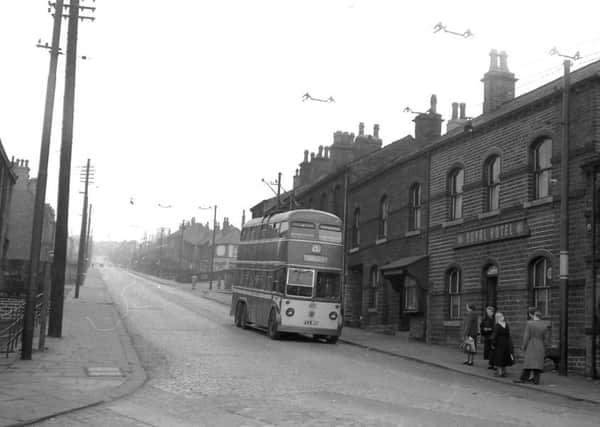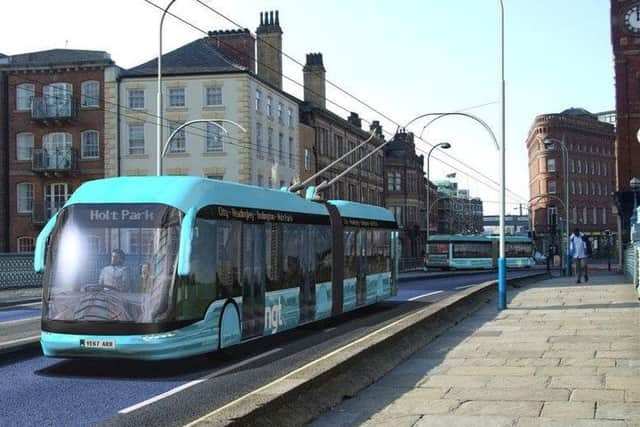Trolleybus technology has advanced from double-deckers as Leeds transport debate intensifies – Yorkshire Post Letters


WITH all due respect to Roger Backhouse (The Yorkshire Post, January 15), the trolleybuses he remembers were of a bygone age: double-decker juggernauts, whose current-collecting booms were prone to come off the contact wires and whose conductors frequently had to jump off the bus to change the overhead ‘points’.
Advertisement
Hide AdAdvertisement
Hide AdTimes have changed and technologies have advanced. I suggest he takes a flight to Geneva, where he will find waiting at the airport a sleek articulated single-decker trolleybus, ready to whisk him soundlessly and swiftly to the city centre. Contact wire escapes are unknown, and route-setting at intersections is achieved by sensors. The driver stays seated, and there is no conductor.


Regarding strikes, Mr Backhouse will also remember that age when the National Union of Mineworkers (NUM) and the National Union of Railwaymen (NUR) combined to bring the country to a standstill with crippling, co-ordinated strikes. The NUM is all but extinct, but the spirit of the NUR is still alive and kicking, having been absorbed into the large Rail Marine and Transport workers union (RMT).
The one thing that stops nationwide strikes in the rail industry is its fragmented nature. While secondary industrial action remains illegal, disputes are confined to the individual train company and cannot spread beyond. Mr Corbyn’s rail nationalisation agenda would have swept away that important restriction, leaving the public to suffer the inevitable chaos.
From: Robert Craig, Priory Road, Weston super Mare.
Advertisement
Hide AdAdvertisement
Hide AdTHOSE behind the HS2 vanity project will say that because millions have already been spent, it has to go ahead. No, it hasn’t. As the old saying has it: “Don’t throw good money after bad.”
The monumental white elephant brings no advantage to Saxland, but we Saxish taxpayers will be expected to cough up billions. It will not even benefit the North and the Midlands.
It will suck wealth and talent to Kentland (London and the South East). It is a financial and environmental disaster in the making. If it is really intended to make a difference to the Northern economy, let the work be begun at the English end in Newcastle; not at the London end.
Saxland (Wessex, Sussex and Essex) and English England need devolved parliaments in Bristol and Leeds, respectively, to protect us from such elitist folly.